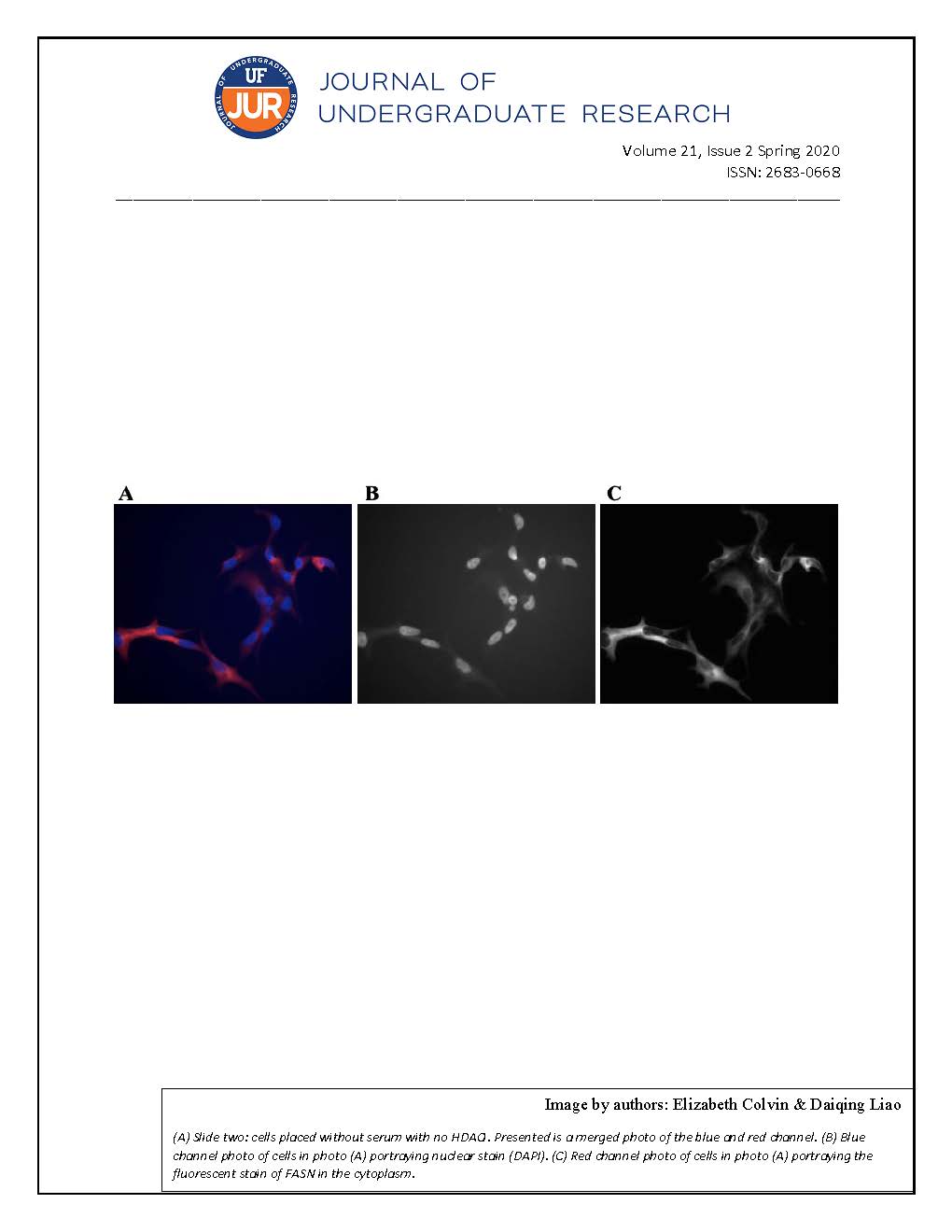Role of p53-Mediated Apoptosis in Limiting Metastasis
DOI:
https://doi.org/10.32473/ufjur.v21i2.108535Keywords:
undergraduate researchAbstract
p53 is a transcription factor known to play important roles in limiting tumorigenesis, including controlling the induction of pro-apoptotic genes and apoptosis in response to oncogenic stress. Using ChIP-Seq and RNA-Seq, our lab has identified p53 binding sites potentially responsible for p53-mediated induction of pro-apoptotic genes following DNA damage. Using CRISPR Cas9, we have generated fly strains with deletions or mutations within the p53 binding motif located in the experimentally verified p53 binding site. This deletion blocked DNA damage induced apoptosis. To study the functionality of the motif in limiting tumorigenesis, we introduced the deletion into a genetic tumorigenesis and metastasis model, where the tumor-suppressor cell polarity gene scribble was knocked down via shRNAi in the non-essential tissue compound eye and introduced together with strong oncogenic mutation that can lead to neoplasia and metastasis. We developed a scoring scale to quantify the severity of neoplasia and metastasis, where 0 indicates a wild type phenotype and 5 indicates the most severe metastatic phenotype. Results show that the p53BSKO predominantly displayed a score of 5 (39%). However, our preliminary results also suggested that the severity of this model may also subject to genetic background besides the p53 binding motif.
References
Mishra, A., Brat, D. J., & Verma, M. (2014). P53 Tumor Suppression Network in Cancer Epigenetics. Methods in Molecular Biology Cancer Epigenetics, 597-605. doi:10.1007/978-1-4939-1804-1_31
Powell, E., Piwnica-Worms, D., & Piwnica-Worms, H. (2014). Contribution of p53 to Metastasis. Cancer Discovery, 4(4). doi:10.1158/2159-8290
Seyfried, T. N., & Huysentruyt, L. C. (2013). On the origin of cancer metastasis. Critical reviews in oncogenesis, 18(1-2), 43-73.
Zhang, C., Casas-Tintó, S., Li, G., Lin, N., Chung, M., Moreno, E., Moberg, K. H., … Zhou, L. (2014). An intergenic regulatory region mediates Drosophila Myc-induced apoptosis and blocks tissue hyperplasia. Oncogene, 34(18), 2385-97.
Zhang, Y., Lin, N., Carroll, P. M., Chan, G., Guan, B., Xiao, H., Yao, B., Wu, S. S., … Zhou, L. (2008). Epigenetic blocking of an enhancer region controls irradiation-induced proapoptotic gene expression in Drosophila embryos. Developmental cell, 14(4), 481-93.
Downloads
Published
Issue
Section
License
Some journals stipulate that submitted articles cannot be under consideration for publication or published in another journal. The student-author and mentor have the option of determining which journal the paper will be submitted to first. UF JUR accepts papers that have been published in other journals or might be published in the future. It is the responsibility of the student-author and mentor to determine whether another journal will accept a paper that has been published in UF JUR.

